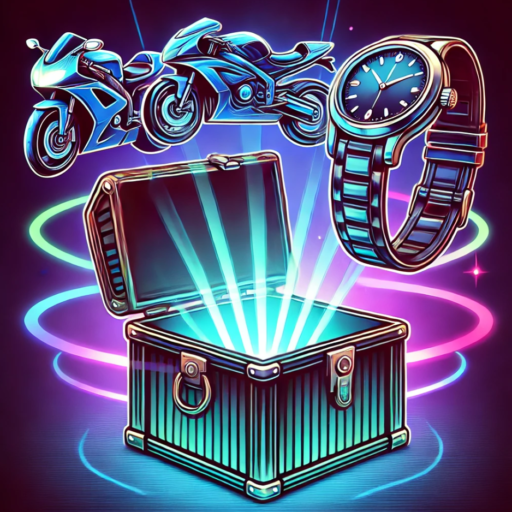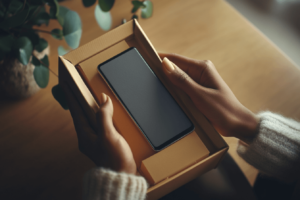The Nature of Surprise
Surprise is a universal human experience, often sudden and involuntary. It is triggered when our expectations are violated when something unanticipated disrupts our mental model of the world. This emotion can be fleeting but powerful, capable of redirecting our attention, shifting our emotional state, and even changing our behavior. Though it may seem simple on the surface, the psychology behind surprise reveals a deeply rooted and complex mechanism that connects cognition, emotion, and perception.
Defining Surprise in Psychological Terms
In psychology, surprise is classified as a basic emotion, though it functions differently than joy, anger, or fear. It does not have a positive or negative valence by default surprise can be pleasant, unpleasant, or neutral depending on context. Researchers describe it as an interrupt mechanism: it captures attention and redirects cognitive resources toward the unexpected stimulus, prompting us to re-evaluate our environment or expectations.
Surprise is often short-lived but leads into other emotional responses. For example, opening a gift might first provoke surprise, followed by joy or disappointment depending on the contents. This transition makes surprise a gateway emotion one that marks a moment of change and prepares the mind for a new emotional trajectory.
How Surprise Differs from Other Emotions
Unlike many emotions, surprise does not require a sustained buildup. It happens instantly and often without conscious processing. While fear or anger can simmer and intensify, surprise hits immediately and fades quickly. Additionally, it lacks a fixed facial expression though raised eyebrows, widened eyes, and a dropped jaw are common markers.
Surprise also plays a unique role in learning and adaptation. Whereas fear often causes avoidance and joy leads to repetition, surprise encourages investigation. It signals that something in the environment needs to be understood or reinterpreted.

The Science Behind the Reaction
The human body is designed to respond rapidly to surprising stimuli. These responses are not just psychological—they are deeply biological, involving several brain regions and chemical messengers.
The Brain’s Response to the Unexpected
When we encounter something surprising, the brain’s predictive systems are thrown off. The prefrontal cortex, which manages expectations and decision-making, detects a mismatch between what we anticipated and what actually occurred. Simultaneously, the amygdala, which processes emotions, is activated to evaluate whether the surprise is a threat.
The anterior cingulate cortex also plays a role in managing surprise by identifying conflicts and prioritizing attention. Together, these systems redirect cognitive resources to focus on the unexpected, allowing us to process new information and adapt quickly.
Neurochemicals Involved in Surprise
Surprise triggers the release of several neurotransmitters, including dopamine, which is linked to reward processing and learning. When the outcome of an event deviates from expectations, dopamine levels fluctuate to signal that the brain should update its internal model.
In moments of positive surprise such as receiving good news oxytocin and serotonin may also be released, enhancing feelings of trust and well-being. In contrast, negative surprises can lead to spikes in cortisol, a stress hormone associated with fight-or-flight responses.
Evolutionary Roots of Surprise
Our ancestors relied on quick reactions to survive. In unpredictable environments, the ability to detect and respond to the unexpected was crucial for avoiding danger and seizing opportunities.
Survival Mechanisms and Adaptive Behavior
Surprise evolved as an alert system. When an unfamiliar sound or movement occurred, it often meant potential danger—a predator in the bushes or a sudden storm. A swift shift in attention could mean the difference between life and death.
Over time, this mechanism became more refined. Humans developed the ability to not only react to surprises but to learn from them, creating more sophisticated expectations about the world and adjusting behaviors accordingly.
The Role of Surprise in Learning and Memory
Surprising events are more likely to be remembered. This is because they create a spike in cognitive activity, enhancing memory consolidation. Psychologists call this the “surprise effect,” and it’s a well-documented phenomenon in both humans and animals.
In education, for example, incorporating unexpected questions or novel teaching methods can increase engagement and retention. The brain treats surprises as priority data, flagging them as worthy of attention and future recall.
Positive vs. Negative Surprise
Not all surprises are created equal. The same underlying process can lead to delight or distress depending on context and individual interpretation.
Why We Love Pleasant Surprises
Pleasant surprises offer joy precisely because they are unexpected. A surprise party, an unexpected promotion, or a thoughtful gift activates reward circuits in the brain. These experiences often feel more impactful than expected positive events, as they exceed our baseline assumptions.
Pleasant surprises also foster stronger social bonds. When others go out of their way to create a joyful surprise, we perceive them as caring and attentive, which builds trust and emotional closeness.
Coping with Unpleasant Surprises
On the other hand, unpleasant surprises like bad news, betrayal, or accidents can provoke intense negative emotions such as anger, sadness, or anxiety. These events may disrupt our sense of control and stability.
Coping with negative surprises involves emotional regulation and cognitive reframing. Resilience, support systems, and previous experiences with adversity play significant roles in how people manage and recover from such disruptions.
Surprise in Everyday Life
Surprise plays a subtle but powerful role in daily experiences, shaping how we perceive the world and how we interact with others.
Marketing and the Art of the Unexpected
Brands often use surprise as a tool to capture attention and enhance consumer engagement. Think of viral campaigns, limited-time offers, or unexpected product features. These strategies leverage psychological novelty to make experiences more memorable.
Surprise in marketing also taps into curiosity, prompting consumers to explore further. A well-executed surprise can create strong emotional associations and foster brand loyalty.
Surprise in Relationships and Social Dynamics
In relationships, surprise adds freshness and depth. Small gestures, spontaneous plans, or unexpected compliments can reinforce connection and intimacy.
However, surprise also introduces vulnerability. When someone acts in an uncharacteristic way positive or negative it can lead to confusion or reevaluation of the relationship. Navigating this space requires trust and open communication.
Designing for Surprise
Surprise is not only a naturally occurring phenomenon it can also be intentionally crafted. From entertainment to user experience design, creating moments of surprise is a powerful way to influence engagement.
Gamification and Entertainment
Games and entertainment media often rely on surprise to keep users engaged. Plot twists, unexpected rewards, and secret features add layers of excitement and emotional impact. These moments create memorable experiences that encourage continued participation.
In video game design, unpredictability is key to immersion. Players are more likely to remain engaged when outcomes are not entirely predictable, as it keeps them invested in discovering what happens next.
The Use of Surprise in Storytelling and Media
Storytellers use surprise to challenge audience expectations. Whether it’s a sudden turn of events in a novel or an unexpected character reveal in a film, these moments elevate emotional response and narrative impact.
Surprise also enhances the pacing and structure of stories. A carefully timed revelation can shift the entire meaning of a plot, leaving a lasting impression and sparking conversation long after the story ends.
Cultural and Individual Differences
Surprise is shaped not only by the situation but also by who we are and where we come from.
How Culture Shapes Our Experience of Surprise
Cultural background plays a significant role in determining what is considered surprising. In some cultures, direct confrontation may be unexpected and jarring, while in others, it may be seen as normal or even respectful.
Furthermore, cultural norms influence how people express and interpret surprise. What shocks one group may be routine to another, depending on shared values, history, and social expectations.
Personality Traits That Affect Surprise Sensitivity
Individual differences also matter. People with high openness to experience are more likely to seek out and enjoy surprises, whereas those with high anxiety may find unexpected events more distressing.
Personality traits such as curiosity, risk tolerance, and adaptability influence how a person responds to surprises. Recognizing these differences can help tailor experiences in education, therapy, and design to better suit individual needs.








